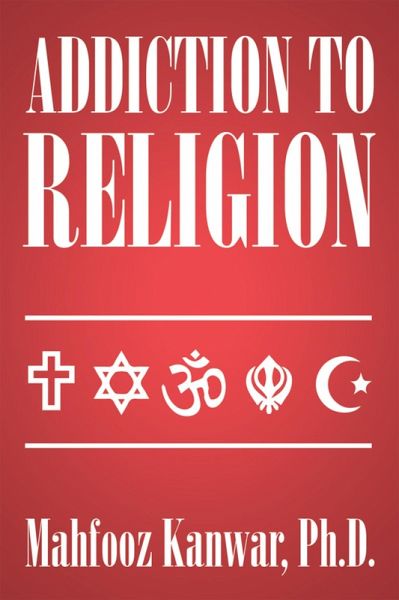
Addiction to Religion (eBook, ePUB)

PAYBACK Punkte
1 °P sammeln!
After the Second World War, in the 1950s and beyond, we embraced revolutionary emancipation of women, among other things, which led to an unprecedented sexual and cultural revolution, especially in the West. We discarded some of the old ways of doing things, and we opened the door to a brand-new and modern civilization in the 1960s, 1970s, and early 1980s. The sexual and cultural revolution led us to secularism, which challenged many draconian mores, including those in Muslim countries such as Pakistan, Malaysia, Turkey, Iran, Tunisia, and Morocco. That was when I published one of my books, So...
After the Second World War, in the 1950s and beyond, we embraced revolutionary emancipation of women, among other things, which led to an unprecedented sexual and cultural revolution, especially in the West. We discarded some of the old ways of doing things, and we opened the door to a brand-new and modern civilization in the 1960s, 1970s, and early 1980s. The sexual and cultural revolution led us to secularism, which challenged many draconian mores, including those in Muslim countries such as Pakistan, Malaysia, Turkey, Iran, Tunisia, and Morocco. That was when I published one of my books, Sociology of Religion: Changing Conceptions in the Structure of Islam. However, in relatively recent times, we have faced the backward process of reverting to traditional norms. That reversed cultural change led to fundamentalism, including fundamentalism in religion, which is a precursor to addiction to religion. That has ultimately resulted in national and international terrorism. That born-again trend encouraged me to do research in this field, including addiction to religion. That led me to write this book. I have concluded in this book that both addiction to drugs and addiction to religion are a disease, a delirium, and a psychic syndrome influenced by a mental disorder. During the last two to three decades, there has been a significant rise in religious fundamentalism leading to addiction to religion, which has caused global havoc. Religion has been hijacked, misused, and abused, largely by semiliterate believers in all organized religions. Religious addiction is perhaps worse than drug addiction. Other books by the Author 1. The Sociology of Family: An Interdisciplinary Approach 2. Sociology of Criminal Behaviour 3. Sociology of Religion: Changing Conceptions in the Structure of Islam 4. Murder and Homicide in Pakistan 5. Issues in Canadian Sociology (with Hewa) 6. Issues in Canadian Sociology, 2nd Ed. (with Swenson) 7. Canadian Sociology (with Swenson) 8. Journey to Success (my autobiography, currently in its tenth edition)
Dieser Download kann aus rechtlichen Gründen nur mit Rechnungsadresse in A, D ausgeliefert werden.













